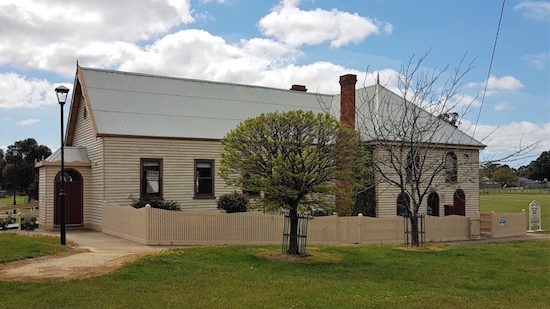
 A total of 30 public buildings in Victoria’s Latrobe Valley are set to have rooftop solar installed at no cost, as part of a state government effort to shift the former coal district to cheaper, cleaner renewable energy.
A total of 30 public buildings in Victoria’s Latrobe Valley are set to have rooftop solar installed at no cost, as part of a state government effort to shift the former coal district to cheaper, cleaner renewable energy.
Local paper the Latrobe Valley Express reports that state energy minister Lily D’Ambrosio last week unveiled a list of the region’s public buildings in line for the free solar upgrades, including solar hot water and lighting.
According to Roger Ries – treasurer at the Toongabbie Mechanics Institute, which was included on the list – solar already installed at the Institute’s recreation reserve had slashed power bills by $500 over the past summer.
As we have reported, the state government is also offering no-cost solar systems to 1000 low-income households across the region, as part of the $5 million Latrobe Valley Home Energy Upgrade Program.
The initiative was announced in February last year, just a couple of months ahead of the closure of the Latrobe Valley’s Hazelwood coal-fired power station.
Hazelwood was shut down in May 2017 by its owner, the French government-owned Engie, on the basis that there were neither the social licence nor the economic grounds to continue operating it.
In comments last week, D’Ambrosio reiterated that those home solar energy upgrades would make a difference to the lives of 1000 vulnerable Gippslanders.
“The energy upgrades and solar installations will not only help bring down energy prices for the Latrobe Valley, they will create local jobs in the renewable energy sector,” she said.
According to latest figures, there have been more than 800 expressions of interest for the program in which residents and landlords can access up to $4500 worth of solar packages at no cost.
The update to the Victorian solar scheme also comes as the government subsidisation of rooftop solar comes under fire from the ACCC, through its comprehensive review of the national electricity market.
As we reported earlier this week, the Australian Competition and Consumer Commission’s report documenting the failures of the NEM has called for the federal small-scale renewable energy scheme (SRES), which provides an upfront rebate for rooftop solar, to be wound down and “abolished” by 2021.
In doing so, Giles Parkinson said, it has chosen to target the technology with the least impact, and offering the biggest benefit to consumers – rooftop solar – for the most dramatic action.
Unfortunately, this risks making solar unattainable for the very people who need it most, like those low income households and community-based organisations in the Latrobe Valley.
Just ask Roger Ries: “It’s made amazing reductions. It’s cheaper for the recreation reserve users and it will make it cheaper for the hall here.”

Sophie is editor of One Step Off The Grid and deputy editor of its sister site, Renew Economy. Sophie has been writing about clean energy for more than a decade.


